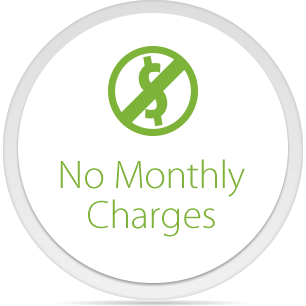A Certificate of Deposit (CD) is similar to a basic savings account, but with one difference: it has term restrictions. Once you deposit money into a CD, you give up access to it for a specified time.
At the end of the term, you get your money and a significant amount of interest. These term restrictions and high interest are the keys to a CD’s effectiveness. Here are the benefits of this financial tool.
1. High-Interest Rates
CDs earn higher interest rates than a savings account would earn. The reason for this disparity is simple. CDs require more sacrifice. When you transfer money into a savings account, you can still access it. Granted, federal regulations limit the number times you can withdraw money in a month. But, withdraw you can.
In contrast, the money you deposit into CDs is inaccessible to you for three months to five years. As an incentive and reward for your sacrifice, you earn better interest rates. As a general rule, the longer the term of your CD, the higher the rates. To find out just how high, use a CD rate calculator.

2. Harder to Raid Savings
As mentioned above, savings accounts have withdrawal limits. But, the limits will not deter you from raiding your savings if you are bent on doing so. CDs, on the other hand, have an effective deterrent – early withdrawal fees and term restrictions.
When you withdraw your money before a CD matures, the bank slaps you with a penalty. However, there is a way you can still access some money, not withdraw early, and avoid the penalty.
Instead of putting all your money in a CD, open several CDs at once but stagger their maturity terms. As they mature, you get regular access to your money. In addition, you can invest the interest from the mature ones in the others.
3. FDIC Insurance
The FDIC (Federal Deposits Insurance Corp.) insure each depositor’s CD to the tune of $250,000. This insurance protects your deposits if the bank collapses. It also dispels any fears you may have about losing money in the future.
For this reason, CDs are the best place to keep the money you don’t need now, but you will need in a few years. A good example is your kids’ college money.
4. No Monthly Charges
Savings accounts attract a $2 to $5 monthly fee, which reduces any interest you earn. In contrast, CDs attract no fee. Instead of you paying the bank, it pays you interest when the CD matures. The only time you should worry about paying any fee is if you succumb to the urge to withdraw early. Only then will the bank charge a fee.

5. Minimum Balance
To open a CD, you start with a minimum of $1,000. However, some retirement CDs will cost you $250. This amount is minimal, considering that regular savings accounts have a $200 to $300 minimum balance.
Conclusion
Compared to savings accounts, CDs have many benefits. They have higher interest rates but no monthly charges. Also, their withdrawal fees make it harder for you to withdraw your savings.
In addition, they have deposit insurance like savings accounts. And although CDs have a higher minimum balance, their higher interest rates offset this.
